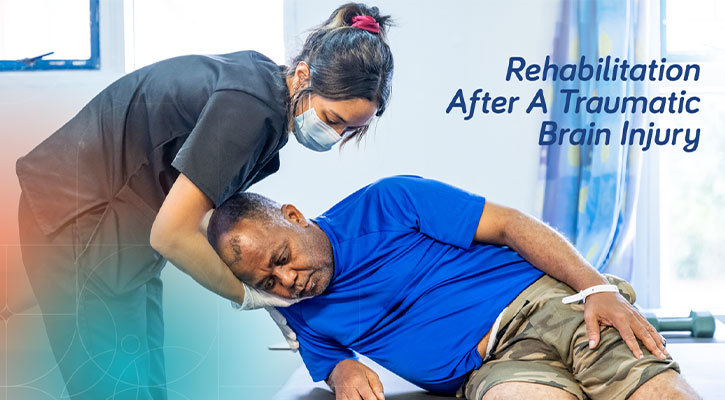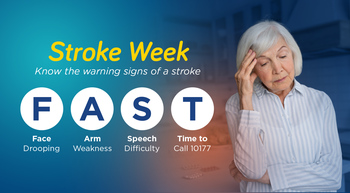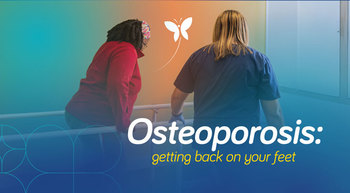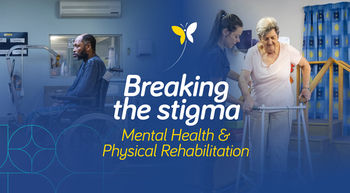
Rehabilitation after a traumatic brain injury
As we observe Brain Injury Awareness Month this March, Nurture Health would like to extend a helping hand to those affected by traumatic brain injury.
Traumatic Brain Injury (TBI) is damage to the brain after trauma to the head, perhaps caused in an accident, or due to an injury or an assault.
Right from the start, patients and their loved ones need to know that from recovering from TBI is not a linear process. It often stretches over a series of stages that vary, depending on the severity of the injury and what part of the brain is affected.
This means that TBI recovery is unique for each individual, with progress varying in speed and consistency. Sometimes fatigue and frustration set in as survivors move through the stages.
Understanding and supporting your loved one through this process is therefore crucial.
Individualised care
At Nurture Health rehabilitation hospitals, our dedicated team of professionals, including physiotherapists, occupational therapists, speech therapists, social workers, nurses, doctors and psychologists, collaborates to provide individualised care addressing each patient's unique needs. This approach ensures caring and holistic healing for TBI survivors, and the best therapeutic treatment.
A rehab programme manager serves as a point of contact to guide families through the evolving rehabilitation process. As patients' needs and abilities change, our healthcare team will adjust programmes accordingly.
What to expect during TBI recovery
Physical, cognitive and neurological rehabilitation may include physical and occupational therapy, speech and language therapy, and social services support.
The type and duration of therapy depend on the severity of symptoms, mobility, ability to engage, and medical stability. It may include:
• Cognitive therapy: Cognitive rehabilitation exercises are vital, enhancing memory and problem-solving skills. It is best if patients and families can actively participate to support mental agility and recovery.
• Physical rehabilitation: Personalised physiotherapy programmes focus on rebuilding strength, coordination, and balance, promoting continuous physical progress.
• Emotional support: Recognising the emotional impact of TBI, psychologists can provide tailored support and coping strategies, and involve families in counselling sessions.
• The value of a routine: Creating a structured daily routine with healthcare professionals ensures stability during the recovery process. This is likely to incorporate rehabilitation sessions, rest, and leisure activities.
• Nutritional guidance: A multidisciplinary team, including nutritionists, provides guidance on maintaining a balanced diet, which is needed for overall well-being.
While not every survivor experiences each stage of recovery in the same way, the journey may span months or even years, which makes a strong long-term support structure all the more important.
Medical treatment may also entail medication for symptoms like headaches, seizures, depression, and behaviour changes. Family and caregivers play a crucial role in coping with impairments and offering ongoing support.
Nurture Health is committed to compassionate care not only in Brain Injury Awareness Month but at all times, spreading awareness and understanding of post-acute care and what follows after on the path to recovery.





